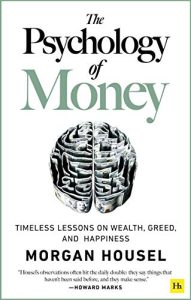
RuPaul has long been an icon of transformation. From his early days in underground drag clubs to becoming an international superstar, producer, and cultural trailblazer, his name is synonymous with reinvention. In The House of Hidden Meanings, RuPaul turns his lens inward, offering readers what is billed as his most personal and revealing memoir yet. The result is a book that is equal parts confessional, philosophical, and performative, reflecting both the glamour and guardedness of its author.
At its core, this memoir traces RuPaul’s journey from a difficult childhood to global fame. Born Black, queer, and poor in a fractured household, he faced a world that was rarely kind to difference. What emerges through the pages is a story of survival through imagination, performance, and relentless self-belief. Readers follow him through his turbulent family life, his early forays into Atlanta’s punk and drag scenes, and his eventual ascent to fame in New York. Along the way, he contemplates identity, addiction, and love, especially his enduring relationship with Georges LeBar.
Yet, as many readers have pointed out, the memoir often feels more curated than confessional. RuPaul’s signature wit and poetic style shine through, but sometimes at the expense of genuine vulnerability. Reviewer That One Ryan aptly observed that RuPaul seems more focused on being quotable than on being raw. The book is filled with epigrams and polished reflections about “life’s hidden meanings,” but those polished words occasionally distance the reader from the emotional truths underneath. The result feels more like a sermon about life’s lessons than an unfiltered window into his soul.
This sense of detachment is echoed by Sarah Watanabe, who found the memoir guarded and incomplete. The narrative delves into RuPaul’s youth and early struggles but largely stops short of exploring his life after achieving fame. Traumatic experiences are touched upon but not fully unpacked. For readers who hoped for a deeper emotional excavation, the memoir may feel like a missed opportunity.
Still, others, like Tara, found profound value in RuPaul’s openness about addiction, generational trauma, and recovery. She describes the audiobook, narrated by RuPaul himself, as an “emotional and immersive experience.” Hearing him recount painful memories in his own voice transforms the book into something raw and deeply human. For listeners willing to approach it as a story of healing and survival rather than gossip or behind-the-scenes celebrity tales, The House of Hidden Meanings can be powerful and redemptive.
Ultimately, this is not a tell-all about fame or the drag industry. It is a meditation on self-creation. RuPaul reminds us that identity is performance, and that power lies in choosing your own narrative. For some, the book’s stylized prose and detachment may frustrate, but for others, it will affirm RuPaul’s belief that authenticity can coexist with artifice. Like the drag he embodies, the memoir is both mask and mirror.
Verdict: A complex, often guarded reflection on identity, fame, and healing. Not as revealing as its title suggests, but still rich in RuPaul’s signature insight and flair. Best experienced as an audiobook for the full emotional weight of his story.
👉 Grab your copy of The House of Hidden Meanings here: Buy on Amazon


